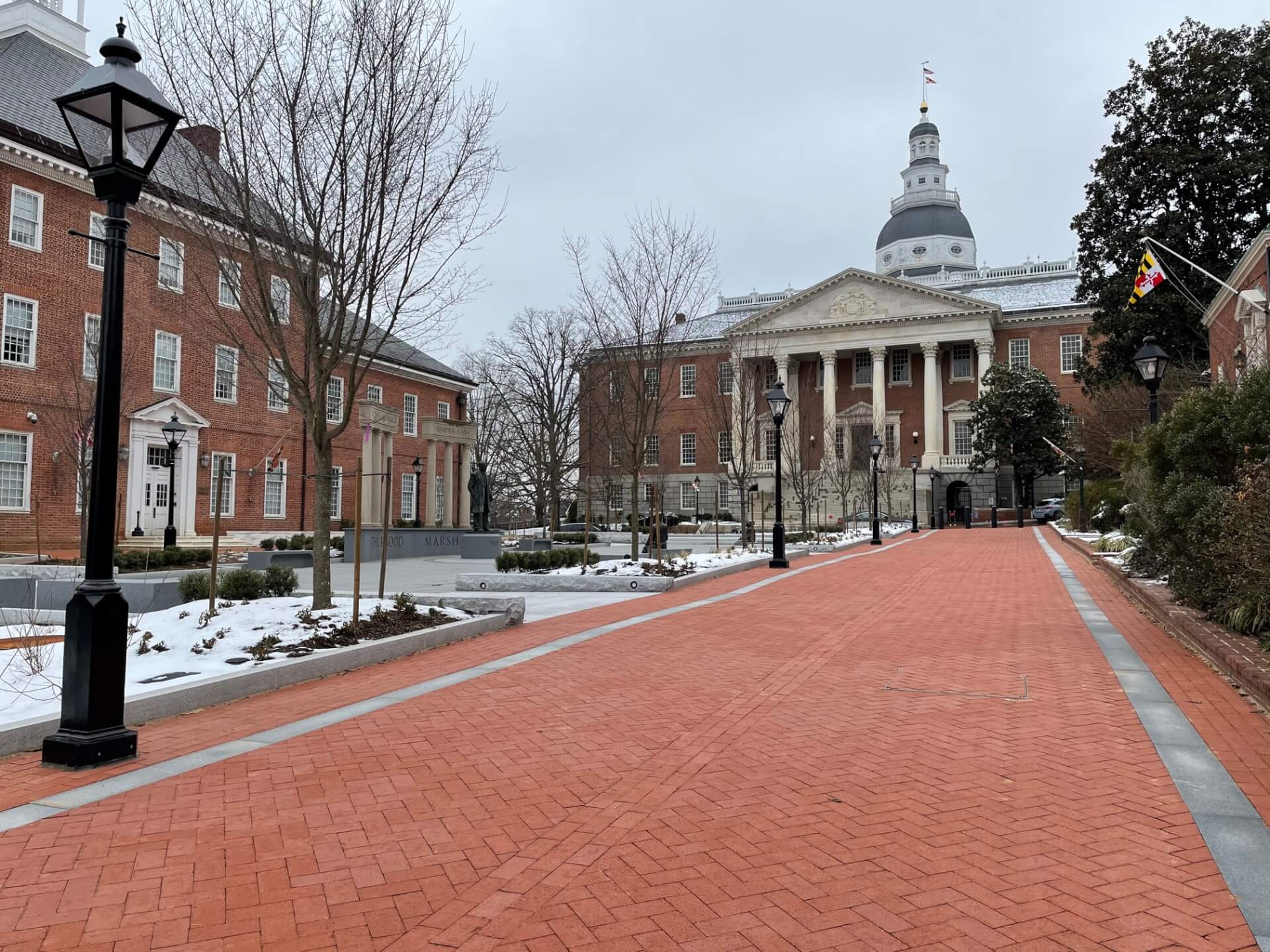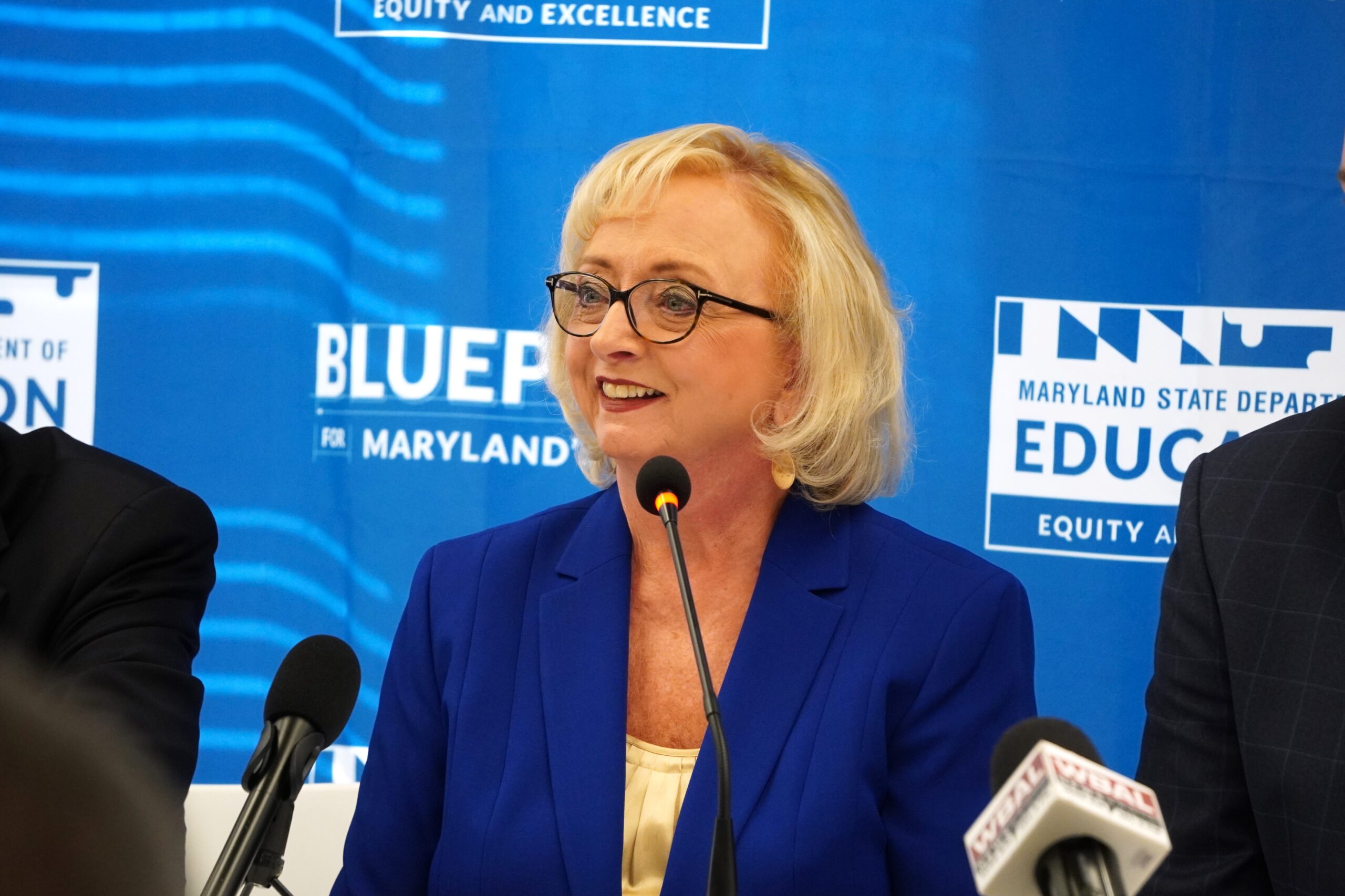Lawmakers Advance Bills to Reform Legislative Vacancy Process

Maryland lawmakers advanced legislation Tuesday that would reform the process for filling legislative vacancies.
The Senate gave preliminary approval to a bill that would establish special elections to fill legislative vacancies in the first half a lawmaker’s term. The House of Delegates gave final approval to a bill that would prohibit elected officials from also serving on their local party central committees, sending that measure over to the Senate.
More than one in five current lawmakers first took their seats in the General Assembly as appointees. Since the last legislative session, county central committees have picked six appointees to the General Assembly.
The two pieces of legislation moving forward also gained traction last year, but failed to secure full passage.
House Bill 335, which is sponsored by Del. Regina T. Boyce (D-Baltimore City), would prohibit elected officials from also serving on their local party central committees. The measure passed the House of Delegates 92-38 on Tuesday morning.
The bill passed the House last year, but did not get a hearing in the Senate as lawmakers rushed to adjourn early at the start of the COVID-19 pandemic.
“For decades, the practice of holding both elected offices has been questionable,” Boyce said at a committee hearing earlier this session. “The allowance of holding both positions poses an interesting dynamic and conflicts of interest for the state central committee member role as well as the elected role. The allowance assumes automatic ‘next in line’ policies and politics that distorts the democratic process and the true role of the elected party office.”
Supporters of the bill have argued that people might be interested in contributing to their party central committee, but may not run if it means challenging their councilmember, delegate or senator.
Del. Michael Griffith (R-Cecil and Harford), a member of the Harford County Republican Central Committee, voted against the measure.
“I serve on the central committee. And when I ran and was elected by my constituents, I was currently eligible to be on the central committee and I was duly elected to serve a four-year term,” Griffith said. “So this would require me, who was duly elected by my constituents, to be forced to resign before the end of my term?”
Del. Jheanelle K. Wilkins (D-Montgomery), who defended the bill on the House floor, said the bill takes effect Oct. 1, which would allow for plenty of notice to fill the vacancy.
Both Griffith and Wilkins were central committee members who were appointed to their House seats.
The bill also brings the law in line with other prohibitions on holding multiple elected offices at the same time, and avoids conflicts when central committees are charged with appointing members to vacancies in the House or Senate, Wilkins said.
Push is on for special elections
Across the hall, the Senate gave preliminary approval to a proposed Constitutional amendment that would allow for a special election to fill a legislative vacancy that happens early in a term. That bill would require a special election to coincide with the presidential election if a vacancy occurs at least 55 days before the filing deadline. An appointed person would still serve in the position until the election, but a special primary and special general election for the legislative vacancy would happen at the same time as the presidential election.
That bill passed the Senate unanimously last year after many years of debate.
The Senate co-sponsors are bipartisan: Sen. Clarence K. Lam (D-Howard) and Senate Minority Whip Michael J. Hough (R-Frederick).
The bill could receive final approval in the Senate as early as Wednesday, though it could face tougher scrutiny in the House.
Del. David Moon (D-Montgomery) is sponsoring the House version of the bill, after introducing similar legislation for the last six years.
This year’s bill is an attempt at compromise, Moon said during a bill hearing last month.
During that hearing, Del. Darryl Barnes (D-Prince George’s), chair of the Legislative Black Caucus, said he’s seen more and more legislators of color and women appointed as a result of the current appointment process and worried about the diversity of the legislature if that process is ended.
“This bill in no way replaces or eliminates the role of the central committees,” Moon said. The compromise allows the central committees to make a temporary appointment, just as they do now. “It’s really just about when that appointed member’s re-election would occur,” Moon said.
Moon noted that after the next gubernatorial election, the new governor ― of whichever party ― is likely to pull a number of senators and delegates into their administration, leaving multiple vacancies.
“And you are going to have a number of districts across the state where there’s basically a vacant four-year term,” Moon said. “And it’s not going to be right to let an appointee sit for four years in office, unelected, when we’re paying for elections during that time. So we’ve got to find a compromise here.”
The two lawmakers agreed to have a separate conversation outside of the hearing.
During the hearing Wilkins noted a concern that appointees, particularly those who might take office during or right before the legislative session and a concurrent annual ban on fundraising activity, would face difficulty mounting such quick re-election campaigns.
Moon acknowledged that the fundraising ban creates an additional hurdle, and he’s open to possible amendments to address those concerns.
Joanne Antoine, executive director of Common Cause Maryland, said at the hearing that she’s interested in seeing more diverse lawmakers as a Black woman, but there’s no guarantee that central committee decisions will fill gaps in representation.
“There really is no guarantee that in this flawed process that these central committees are going to make diversifying the General Assembly a priority,” Antoine said during the House bill hearing.
Cristi Demnowicz, of Represent Maryland, opposed the bill, saying the group wants “true special elections,” completely free from the influence of central committees and to immediately fill vacancies.
Demnowicz said that since 2018 the legislature has seen the most appointed members in state history. A third of all appointments in the last 30 years have taken place in the last three years, she said.
“This bill is a misleading and unnecessary step in that process,” Demnowicz said.
If approved by the General Assembly, the bill would go to a referendum of voters for final approval.




 Creative Commons Attribution
Creative Commons Attribution